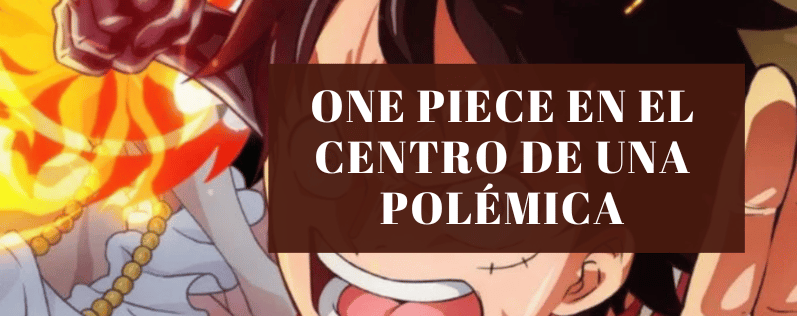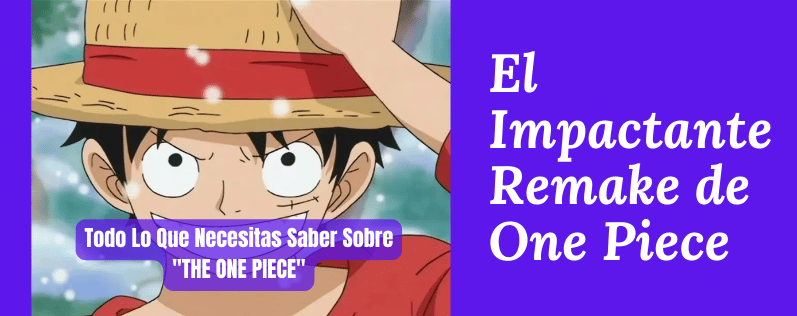One Piece at the center of a controversy

One Piece at the center of a controversy: What happened to the unfortunate comment?
One Pieceone of the most emblematic animes in the world, has been the subject of a recent controversy that has unleashed a wave of criticism and comments on social networks. It all started when the business analyst Kouki Ozora, during a broadcast of the Japanese program Mezamashi 8The analyst made a comment that many considered insulting to fans of the series. The analyst stated that "One Piece is probably read by people who don't have many friends," which quickly provoked a strong reaction in the fandom.
The context of the comment
In the program, they were discussing the news that One Piece had reached a new narrative arc, the famous "Wano Country Arc". During the discussion, Ozora, noticing the silence in the studio when asked if any of the commentators had read the series, added wryly that "the people who don't have friends are the ones who read One Piece." Although the main presenter tried to smooth over the situation, Ozora's statement had already caused deep discomfort, especially among the franchise's most loyal fans.
The reaction of the fandom
As expected, One Piece fans were quick to express their outrage on social media, calling the comments prejudiced and discriminatory. Many defended the series and its values, arguing that One Piece has been a source of inspiration for millions of people around the world. Some users wrote: "It's not just a manga, it's an adventure that has accompanied us for years," and others noted that the analyst's comment was "unnecessary and rude," both towards fans and the series itself.
Offended fandom, but with a sense of humor
Despite the fury generated by the comment, there were those who took the situation with humor. Some fans joked about being "loners" who dedicated their lives to following the adventures of Luffy and his friends. However, most agreed that the statement was inappropriate, and called for respect for one of the most important franchises in the history of anime and manga.
The reasons behind the controversy
Ozora's comment adds to a recurring trend in certain Japanese media, where derogatory remarks are made towards otaku (anime and manga fans). While this type of commentary is not new, what is surprising is that it occurs on a high-profile television program and at a time when One Piece is at the height of its popularity.
What makes One Piece so special?
Throughout its more than 25 years of existence, One Piece has built a loyal and passionate fan base. With its deep storytelling, charismatic characters and universal themes such as friendship, perseverance and sacrifice, it is hard to imagine a work of this caliber being associated with such simplistic stereotypes as those suggested by Ozora.
Moreover, the massive success of One Piece both in Japan and abroad reflects the series' ability to transcend cultural and emotional boundaries, something that many media and anime critics have pointed to as one of the keys to its longevity and relevance. Despite the controversies, it remains a phenomenon that has marked generations.
Frequently asked questions about the controversy
Why did Ozora's comment generate so much controversy?
Ozora's comment was perceived as a derogatory attack on One Piece fans, suggesting that those who read it have no friends. This was considered a prejudiced generalization, prompting a swift negative response on social media.
What impact did this controversy have on the popularity of One Piece?
Despite the incident, One Piece remains one of the most beloved and successful franchises. While the controversy generated a debate about respect for anime fans, it has not significantly affected the series' popularity.
What do One Piece fans think about the situation?
Most fans were offended and expressed it on social media. While some took the situation with humor, others saw it as disrespectful to the series and its global community.
Personal opinion
This incident makes it clear that, although anime and manga have gone global, prejudices still exist in certain quarters. One Piece is a complex work that has resonated with millions of people, and to associate it with negative stereotypes is not only simplistic, but underestimates the cultural impact of the series. Beyond the controversy, I think these types of comments only reinforce the need for media platforms to handle their discussions with more sensitivity and respect.
Conclusion
Despite the unfortunate comment, One Piece remains a series that touches the hearts of many. This type of controversy reminds us of the importance of respecting fan communities and avoiding generalizations.
There is no doubt that One Piece will continue to sail on successfully, as it has for more than two decades. For more news and articles on anime and otaku culture, don't forget to check out our blogWe look forward to seeing you with fresh and exciting content!



Responses